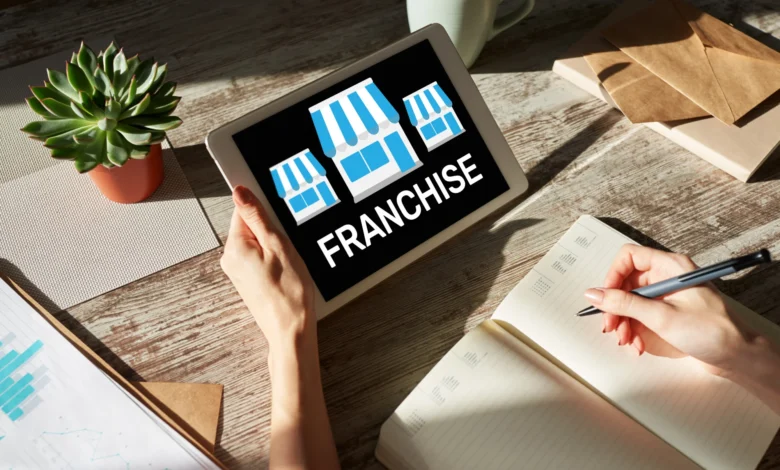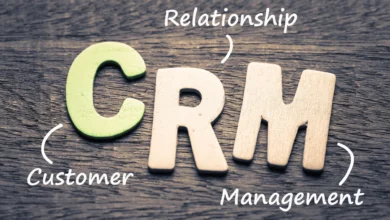How to Start a Franchise

If you’re looking to take the leap into entrepreneurship and start a franchise business, click here to explore everything you need to know!
Starting a franchise is an attractive route for many would-be business owners. The appeal lies in the potential for a quicker path to profitability. And, this is thanks to the established brand and ready-made business model.
But there’s more to franchising than only adopting an existing name. This guide seeks to demystify the process. It will also be providing insights into the necessary steps, research, and potential pitfalls.
If you want to learn more about how to start a franchise, then keep reading.
Understanding the Concept of Franchising
At its core, starting a franchise is a legal and commercial relationship between the owner of a brand and an individual or group. They are known as the franchisor, the one who owns the brand, and franchisees, or those who want to use that brand’s identification in a business.
As a franchisee, you are granted the right to sell a product or service under the franchisor’s brand. And, you must follow their specified business model. You need to spend time familiarizing yourself with this business structure.
This can help you ensure you’re making a well-informed decision. After all, starting a franchise is an investment. It is one that requires you to have a comprehensive understanding of the franchising landscape.
Selecting the Right Franchise for You
The types of franchises come in all shapes and sizes. This ranges from fast-food chains to even children’s franchises. If you’re interested in learning more about your options, you can find more information here. Not all will be the right fit for you, this is why conducting thorough research into franchise opportunities is non-negotiable.
You must consider factors such as the initial investment and ongoing fees. You also need to check the training and support provided, and the reputation of the brand. But don’t stop there.
You should also examine how the franchise aligns with your personal interests, skills, and long-term goals. Your ultimate aim is to find a franchise that is not only enticing to you but also offers a high likelihood of success.
Evaluating Your Financial Situation
Financial readiness is key when starting a franchise. Initial costs include the franchise fee, to start. Others include real estate, equipment, supplies, insurance, and working capital. It is, thus, crucial to check your financial situation.
Make sure to consider how much you’re capable of investing. And, check how much risk you’re comfortable with, and how much you can afford to lose. Various financing options are available, including bank loans, private investors, and franchisor-provided funding.
Be realistic about your finances. And, remember that a healthy financial foundation is integral to the success of your franchise.
Understanding the Franchise Agreement
The franchise agreement is a legally binding document. The franchise agreement serves as the cornerstone of the franchisor-franchisee relationship. This pivotal document not only delineates the rights and responsibilities of both parties but also encompasses various crucial aspects.
These include specifying the duration of the agreement, defining the allocated territory, detailing the associated fees, enumerating the provisions for training and support, as well as outlining the conditions that govern termination. This document is a central part of starting a franchise, and it’s crucial to understand every clause before signing
Engage the services of a lawyer who specializes in franchising to ensure that you are well-informed and protected.
Attending Discovery Day
Discovery Day is a significant event hosted by most franchisors for potential franchisees. It offers you the chance to meet the franchisor, ask questions, and observe the business operations up close. Be prepared to use this opportunity to gather as much information as possible.
Speak to current franchisees to learn about their experiences, and don’t shy away from asking tough questions. The insights you glean from Discovery Day can guide your decision on whether to proceed with the franchise opportunity.
Securing a Prime Location
Location is a crucial determinant of the success of many franchises. The best location will depend on the nature of the franchise. Other factors that play a part are the target audience, level of competition, and local market conditions.
Most franchisors have guidelines for site selection and may need to approve your chosen location. Understand these requirements early on, and focus on securing a prime location.
Training and Preparing for Launch
It’s important to ensure the necessary training is in place for the individuals responsible for its launch and continued success. Start by committing to any necessary initial training like store operations and key personnel development.
Next, stay educated on the latest industry trends and best practices. This involves joining industry organizations to access additional resources.
Lastly, create an internal training program in order to pass on the knowledge acquired from the previous steps to current and new hires. Keep a timeline in mind to consistently make sure all team members are up to date with the latest learnings. Developing and implementing the right training and preparation strategies will help ensure the franchise’s successful launch and continued growth.
Launching and Managing Your Franchise
Starting a franchise is only the first step. Success requires careful management.
It will also need a willingness to follow the franchisor’s established systems. Excellent customer service and a dedication to continuous learning are also important.
Prepare yourself to put in long hours, especially in the early days, and remain focused on achieving your business objectives. This launch is only the beginning of your exciting journey as a franchisee.
Evaluating Your Success and Looking Ahead
Owning a franchise is a journey. It requires continuous effort and learning to navigate business challenges and seize opportunities. Make sure you are doing evaluations as often as you can.
You need to measure and track your business performance against your goals and the broader franchise network. Seek feedback from customers and your franchisor to look for areas of improvement that you can put into practice.
Remember, starting a franchise is not only about the initial setup. It is also about ongoing growth and advancement.
Keep Yourself Informed Before You Start a Franchise
The journey to start a franchise can be an exciting, rewarding path to business ownership. However, making this decision is not something done on a whim or within a short period of time. Thorough research, careful planning, and a commitment to hard work are all essential for success.
If you’ve considered all the points above, you may well be on your way to starting a franchise and becoming successful. So, always keep these in mind the next time you are looking to start your next business venture. Good luck on your entrepreneurial journey!
If you enjoyed this topic, visit our blog today for more helpful content like this one!




